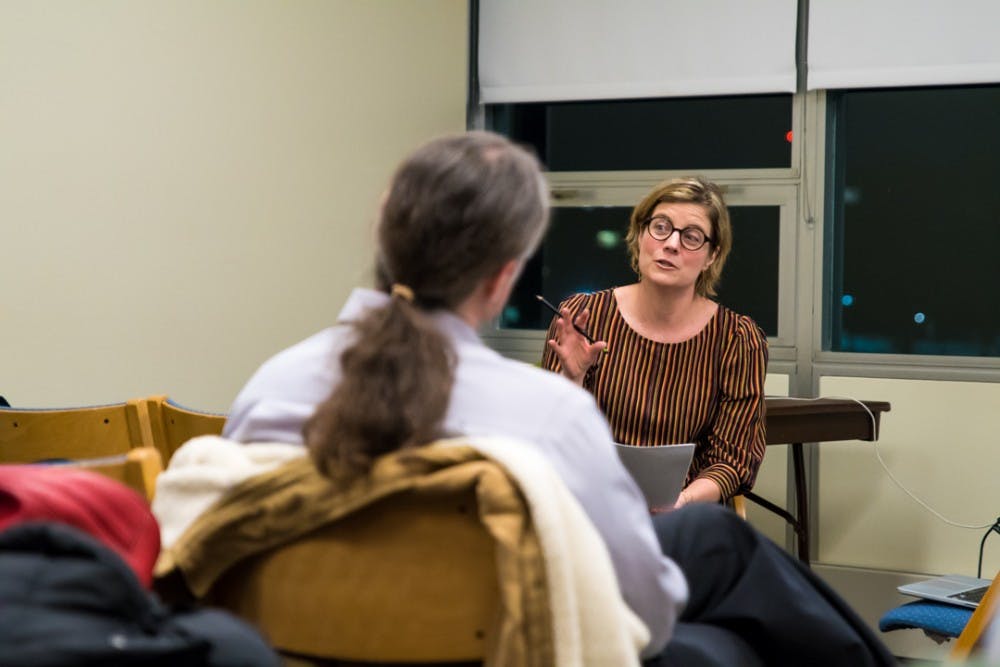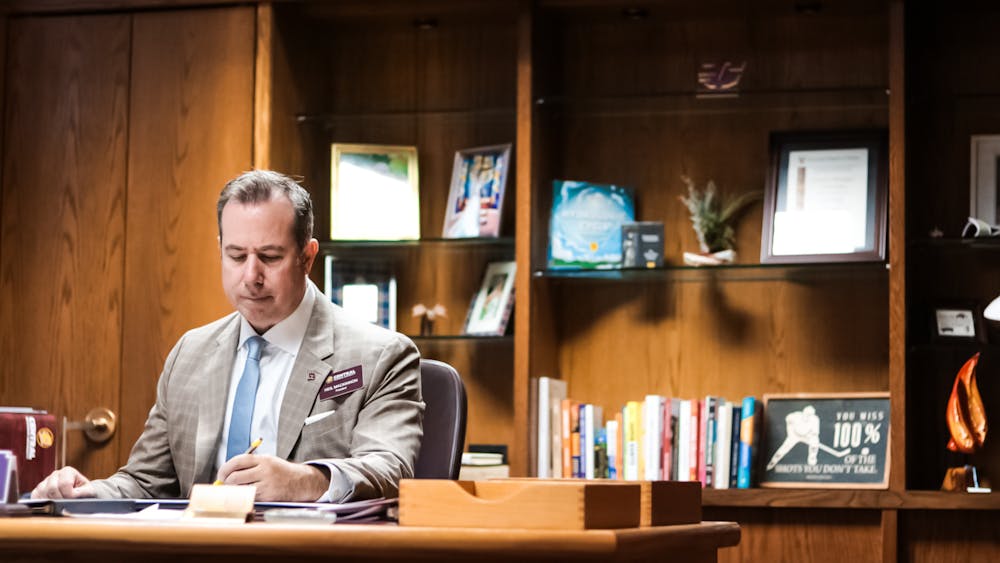English professor highlights media network innovators from the 1790s

Central Michigan University English Professor JoEllen Delucia delivers a presentation on the history of media distribution on Feb. 21 in the UC Lake Michigan room.
Central Michigan University English Language and Literature Professor JoEllen DeLucia presented “Distributing Justice: George Robinson’s Media Network in the 1790s” focused on research from her sabbatical.
The presentation took place at 7 p.m. on Thursday, Feb. 21 at the Bovee University Center Lake Michigan Room and was sponsored by the English and Language Literature Department.
DeLucia has been working on the project for the past five years, focusing on the innovation of booksellers in the 18th century.
“In 18th and early 19th centuries, shifts in technology, economics, politics and the arts prompted several booksellers to use books to market other commodities,” DeLucia said.
The presentation mentioned the influences of John Newberry, Thomas Longman, George Routledge, William Godwin and George Robinson.
Robinson was a radical bookseller who published "The Mysteries of Udolpho and A Journey Made in the summer of 1794."
“In addition to publishing novels and ladies’ pocketbooks, which are the ancestor of a personal planner, Robinson published the most popular magazine of the 18th century, 'The Lady’s Magazine,'” DeLucia said.
DeLucia brought a copy of "The Lady’s Magazine" and passed it around the audience, allowing them to the details the content.
“I really enjoyed 'The Lady’s Magazine' artifact that she brought and sent around,” said Clarkson senior Hunter Mclaren. “I thought it was really cool and I think it really supplemented a few points she made in her talk.”
The magazine published excerpts of novels, travel narratives, sheet music, sewing patterns and more.
“I thought the magazine was cool, it had the songs and something about sewing and all that, so that was cool,” said Bay City sophomore Alison McCreery.
Before the invention of what is now called a magazine — once another term for the warehouse.
“I just think the media format for the magazine is really fascinating, some people define it as a tour house of knowledge because you can go through it and see all different content and things to do,” DeLucia said.
As her event came to an end, DeLucia gave the audience the opportunity to ask questions on the topic. Most of the questions were from DeLucia’s fellow English and Language Literature Department faculty.
“The complexity and expansiveness of Robinson’s network make it difficult to think about the network as any sort of form that’d be possible to study or even ascribing characteristics to,” DeLucia said. “The network he facilitated challenged the bound and pull of the nation by testing aesthetic, legal and political boundaries, reaching new audiences and fostering the sense that we are all bound together, not as citizens of a nation but as citizens of the larger more complex world.”






